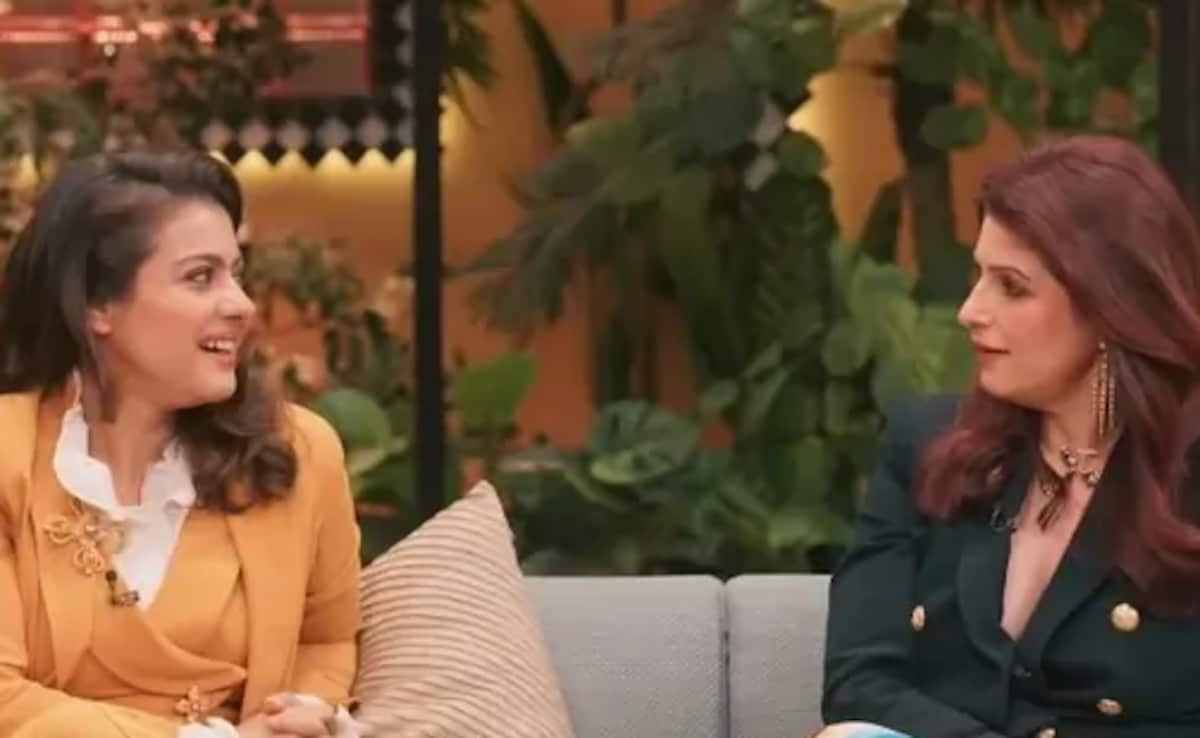
If relationships came with user manuals, Gen Z would probably be the first generation to actually read them, annotate them, colour-code them, and then rewrite the parts that no longer make sense.
They are sharp, self-aware, less tolerant of emotional ambiguity, and refreshingly unapologetic about wanting clarity in love.
In a culture that once glorified endurance and "adjustment," their brand of honesty feels both disruptive and necessary. And nowhere has this generational shift been more evident than in the recent episodes of Two Much With Twinkle & Kajol, where Bollywood's younger voices unexpectedly emerged as the sharpest commentators on relationships.
Bollywood's most seasoned stars, Kajol and Twinkle Khanna, have driven conversations that occasionally reveal the blind spots of an earlier era and found themselves defending questionable relationship takes, while Gen-Z actors like Janhvi Kapoor emerged as the surprising voices of clarity.
When Janhvi Kapoor Refused to Romanticise "Raat Gayi, Baat Gayi"
One of the most debated moments on the show unfolded when the topic of cheating came up. Twinkle Khanna, Kajol and Karan Johar casually agreed that physical infidelity may not be a deal-breaker.
Twinkle even joked, "Raat gayi, baat gayi," implying that bygones should remain in the past.
Janhvi Kapoor, however, immediately disagreed, firmly stating, "Baat nahi jaati."
When Karan added, "Physical infidelity is not a deal breaker," Janhvi held her ground: "No, the deal is broken."
The Internet swiftly took her side. Many viewers applauded her refusal to minimise betrayal and admired the conviction with which she voiced her stance, despite being the only one on the other side of the room. Comments praised her for having "standards," for being "sane," and for maintaining her moral compass in a conversation that seemed to normalise casual disrespect within relationships.
For many, her reaction signalled what psychologists have long observed: younger generations are far less willing to tolerate behaviour that chips away at trust.
As relationship therapist Dr Shan Singh points out, "Gen Z sees boundaries as healthy, not hostile. Gen Z is not afraid to walk away. For them, clarity is love and boundaries are care. Older generations often saw suffering as loyalty; younger generations see self-respect as longevity."
Modern Dating, "Situationships," And Janhvi's Zero-Tolerance Policy
This clarity extended into Janhvi's take on modern dating. She criticised the rising "situationship" culture with startling bluntness.
"I just think it is a very retarded concept... Mujhe ye beech ka samajh nahi aata," she said, arguing that emotional grey areas benefit no one. Her core belief was unmistakable: if you like someone, commit. If you don't, don't lead them on.

Experts agree that younger people prefer labels not out of rigidity but because emotional limbo creates anxiety. Clear terms, clear intentions, and clear expectations: that's the Gen Z dating grammar.
Kajol's Baffling Take On Marriages
Kajol's statement that marriage should come with an expiry date sparked another wave of debate. "I definitely think so," she declared.
She said, "What guarantees that you'll marry the right person at the right time? A renewal option would make sense and if there's an expiry date, no one has to suffer for too long." Twinkle shot back with, "No, it's marriage, not a washing machine," and Kriti Sanon and Vicky Kaushal sided with her.
Kajol's point seemed to stem from the complexities she associates with long-term commitment, but it also hinted at an older worldview that treats longevity as both the goal and the burden of a relationship.

Gen Z, however, tends to look at marriage and all partnerships through a more active, agency-driven lens: stay if it works, leave if it doesn't, communicate honestly in between.
That's why "let's renew only if we're both happy" feels more Gen Z than Gen X, except Kajol didn't frame it in the empowering, choice-based way younger people do. She framed it as inevitability, not agency.
Janhvi On Male Egos
In another segment, Janhvi spoke candidly about having to shrink herself in certain workplaces to accommodate fragile male egos.
"I kind of need to precede someone and pretend to be dumb," she admitted, adding, "You need to pick your battles and manoeuvre how you need to put your point across without rubbing anyone the wrong way."
Twinkle empathised, recalling similar experiences in the 1990s.
But the difference was striking. Gen Z is naming the problem, loudly, instead of normalising it.
Sociocultural expert Dr Bhumika Raj explains, "Younger actors calling out ego management shifts the power dynamic. Naming a pattern is the first step to ending it - something earlier generations were rarely allowed to do."
Who Really Understands Whom?
Twinkle and Kajol frequently suggested Gen Z lacks depth or resilience. But Ananya countered every stereotype with composure.
Kajol: "Gen Z needs Google Maps to walk down their own street."
Farah: "They know about sourdough and all that."
Twinkle: "They're traumatised by everything."
Yet Ananya's responses revealed a generation hyper-aware of both themselves and the world - more adaptive, more communicative, more self-caring.
Even when the debate turned to partner-swapping and whether younger people "change partners like outfits," Ananya again calmly corrected them, "People have always been changing their partners. Earlier, it was a bit quiet."
Kajol and Twinkle repeatedly treated youth behaviour as a flaw. Ananya and Janhvi repeatedly reframed it as evolution.
Why The Internet Chose Gen Z This Time
Across multiple episodes, Kajol and Twinkle often expressed opinions that painted Gen Z as naive, over-emotional or impulsive. Janhvi, on the other hand, articulated views that showed consistency, empathy, and a surprisingly grounded understanding of modern relationship dynamics.
The audience noticed. The Internet overwhelmingly praised the younger stars for their maturity, while calling out the hosts' takes as "outdated or dismissive".
Audiences across generations recognised that Kajol and Twinkle's takes often came from outdated relationship frameworks. What they viewed as maturity ("ignore cheating," "stop being sensitive," "renew marriage later") felt to viewers like settling.
What emerged was not a battle of generations but a revelation of how rapidly ideas about love, loyalty, mental health and boundaries have transformed.
The Final Word
Kajol and Twinkle may be icons - wise, witty, and sharp - but on this particular battlefield, Gen Z walked out with the mic drop moment.
The younger actors didn't just defend their generation; they showed that emotional intelligence doesn't come with age, it comes with awareness.
In other words, the future of love might just belong to the Janhvis of the world.
And honestly? We could all learn a thing or two from them.
Track Latest News Live on NDTV.com and get news updates from India and around the world

